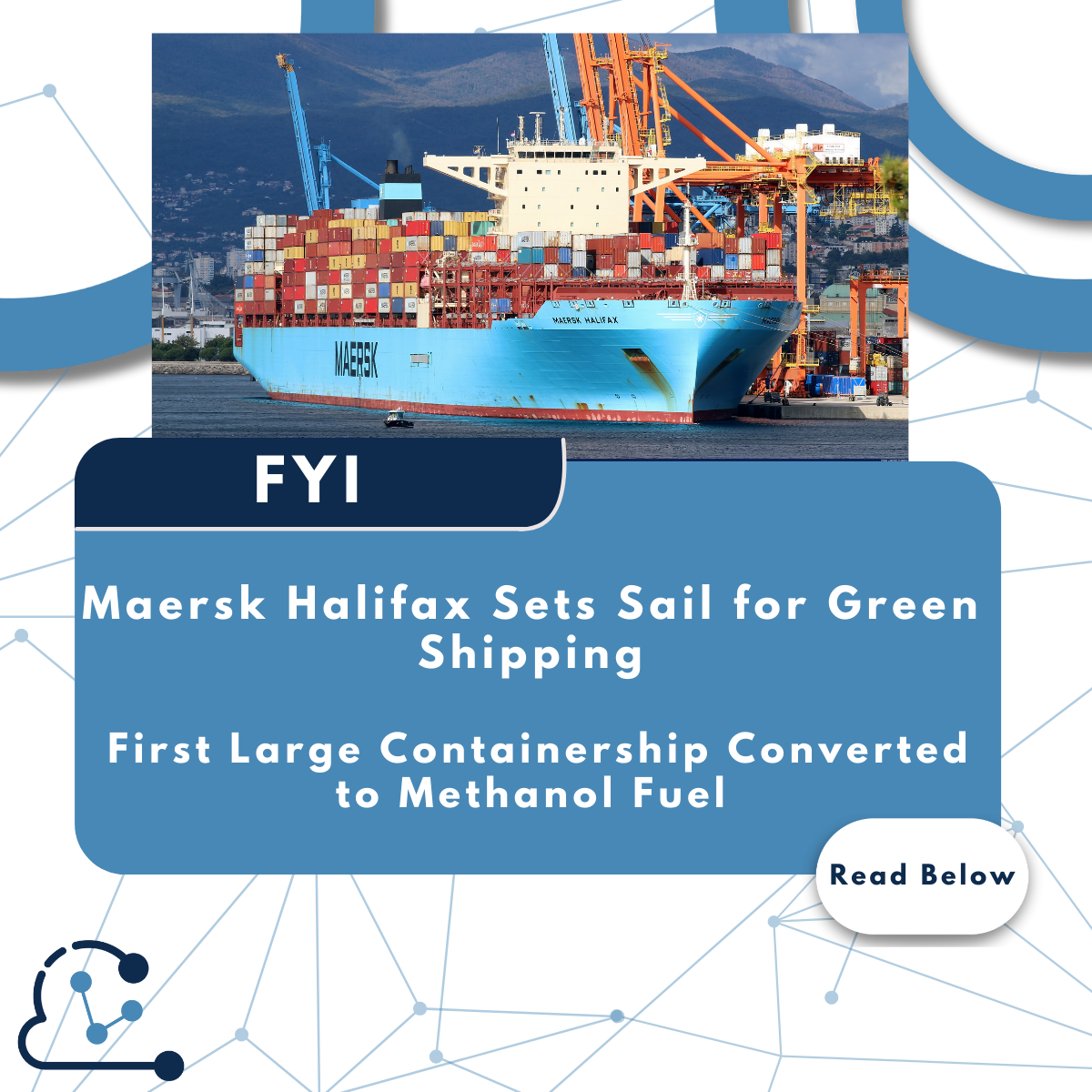In a significant milestone for sustainable shipping, Maersk has completed the conversion of its Maersk Halifax to run on dual-fuel methanol, marking it as the first large, in-service vessel to undergo such a transformation. Celebrated in a ceremony in China on 29 October, this achievement signals a new chapter in green shipping as carriers strive to reduce their carbon footprints and meet rising environmental regulations.
The Maersk Halifax, built in 2017 and measuring 1,158 feet (352 metres) with a capacity of 15,226 TEU, is now a striking 1,204 feet (367 metres) long and boasts a nominal capacity of 15,262 TEU. This complex retrofit took place at Zhoushan Yatai Ship Engineering and Repair Co., where the shipyard’s prefabricated approach helped complete the project within 236 days, significantly accelerating the transition. Maersk’s conversion project included a main engine upgrade, installation of dedicated methanol fuel tanks, and integration of a dual-fuel line. Alfa Laval supplied the fuel system, and a specialised zinc coating was applied to protect the new methanol tanks by Chengxi Walxin Special Coatings Co., covering 2,800 square metres.
Klaus Rasmussen, Head of Projects and PVU Sales at MAN PrimeServ, explained the conversion’s feasibility, noting that “retrofitting a MAN B&W engine to dual-fuel running is straightforward as our standard, electronically-controlled ME-C diesel engines are constructed as ‘dual-fuel ready’ and therefore readily retrofittable.”
The Maersk Halifax began sea trials on 16 October and completed them within four days. According to Maersk’s systems, the vessel departed Shanghai on 5 November and is set to make stops in China and South Korea before arriving at APM Terminals Lazaro Cardenas in Mexico. Maersk has confirmed that similar methanol conversions are planned for sister ships, with the next retrofit scheduled for 2027.
A Wave of Methanol Conversions Sweeps the Industry
Maersk’s pioneering effort underscores a broader trend across major shipping lines, as competitors COSCO, CMA CGM, and Seaspan (in partnership with Hapag-Lloyd) are actively planning their own methanol conversions. Recently, work began on a 20,000 TEU COSCO containership at Shanghai COSCO Shipping Heavy Industry, which will also be outfitted to run on methanol using both the MAN S90 main engine and the Wärtsilä W32 auxiliary engine.
This wave of conversions marks a fundamental shift in how the shipping industry approaches fuel efficiency and emissions, setting new standards for sustainability in global logistics. However, as companies increasingly adopt methanol and other alternative fuels, the need for visibility and real-time data becomes essential. Effective supply chain management is no longer just about moving goods—it’s about understanding the environmental impact and enabling Beneficial Cargo Owners (BCOs) and Logistics Service Providers (LSPs) to make informed decisions that drive sustainability and efficiency.
The Role of Real-Time Data in Green Shipping
As these advancements accelerate, implementing supply chain and climate-impact visibility software will be critical. Real-time data insights empower BCOs and LSPs to track vessel fuel efficiency, route emissions, and potential disruptions, equipping them to make timely, business-critical decisions. By monitoring environmental impact in real time, stakeholders can optimise their supply chain operations, adapt routes as needed, and achieve greater transparency in their climate commitments. This digital shift is essential for mitigating the environmental impacts of global shipping and ensuring that supply chains are not only efficient but also sustainable.
In embracing methanol and technology-forward solutions, Maersk and other leading shipping companies are forging a path toward a greener future, and robust data-driven tools will be instrumental in helping them reach that goal.

